Here are the highlights of the chat.
Question: Can you talk about your upbringing and background?
Where in South Korea were you born?
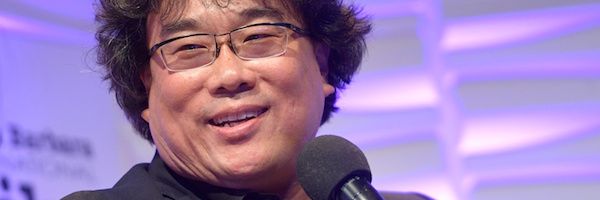
BONG JOON HO: I was born in the city of Daegu.
Korea is a small peninsula, and its on the Southern part of Korea.
I spent my childhood there, and moved to Seoul.
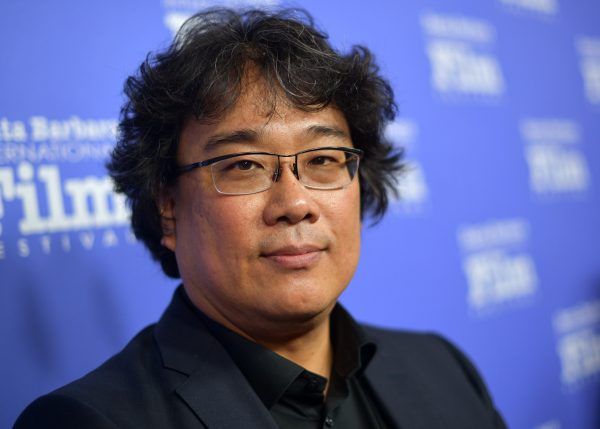
Image via Getty Images for SBIFF
Was your family upper class, lower class, or middle class?
Where did you guys fit in?
BONG: You could say that I grew up in a middle class family.
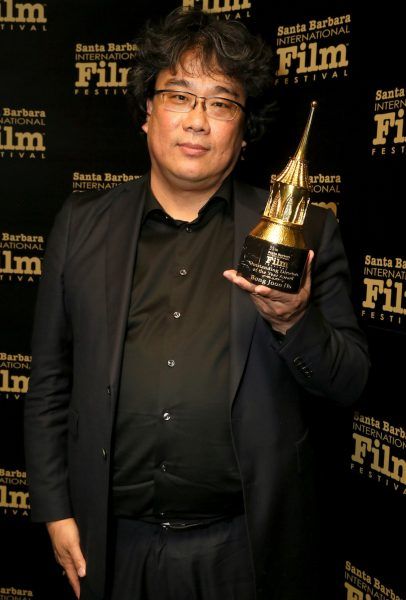
Image via Getty Images for SBIFF
My father is a graphic design professor at a university.
How do you think those things may have shaped the person that you became?
Kids just like to roam around.
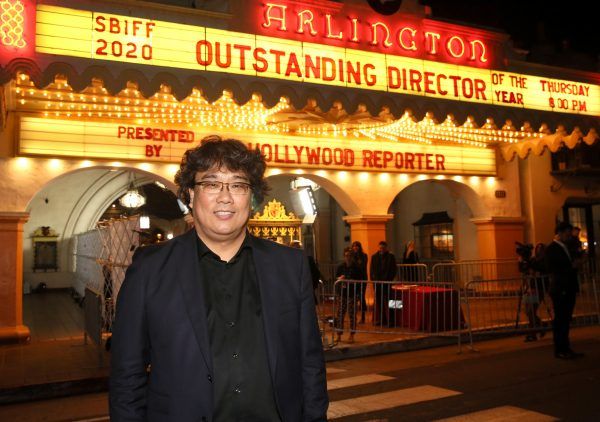
Image via Getty Images for SBIFF
But for me, in particular, I really loved to watch TV, and films playing on TV.
I rarely went outside.
My entire family doesnt like to do sports or travel.
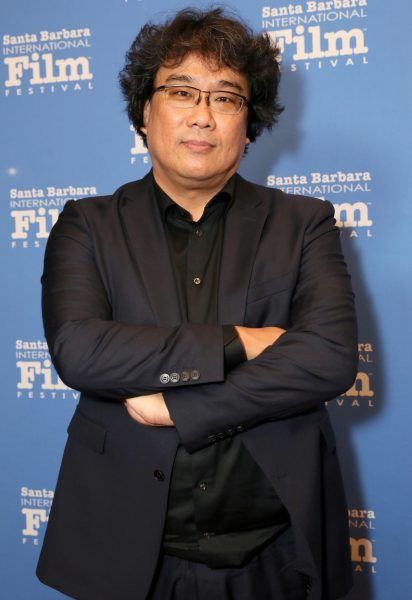
Image via Getty Images for SBIFF
Everyone just likes to watch film on TV, so my television was my own personal Cinematheque.
Was that how you first got exposed to great cinema, or were you also going to theaters?
BONG: My mother was a little bit of a compulsive germaphobe.
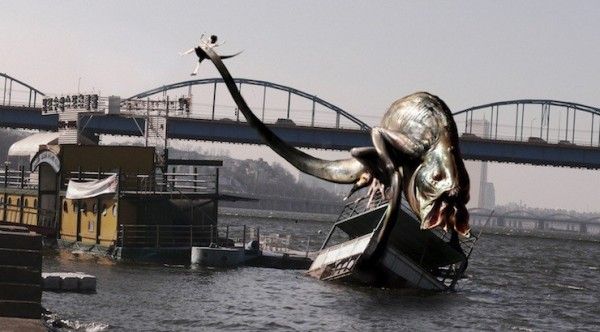
Image via Showbox Entertainment
So, when I watched the great films on TV, almost all of them were slightly censored.
Thats when I started cultivating my cinematic language.
BONG: I did major in sociology, but I know very little about it.
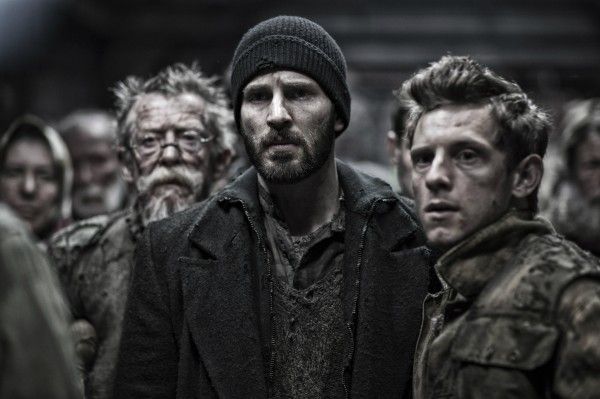
Image via The Weinstein Company
I spent most of my time at a cinema club, and thats actually where I met my wife.
Im a part of the generation that was blessed.
Why did you call your cinema club Yellow Door?
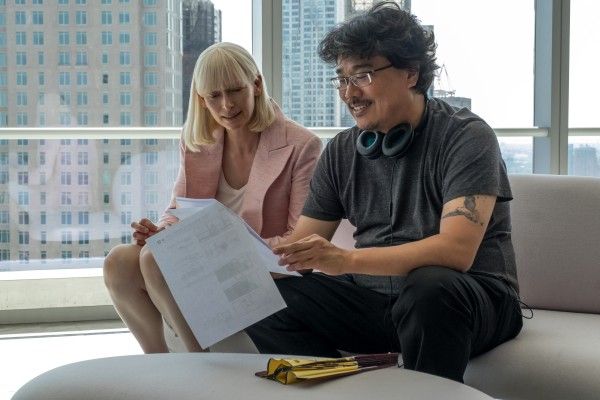
Image via Netflix
BONG: It was called Yellow Door because the door of our club room was painted in yellow.
Thats why we named it that.
My job in the club was to manage the video collection.
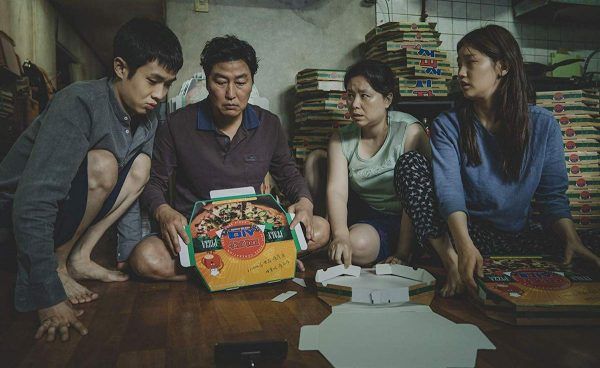
Image via Neon
Were you already starting to make films, at that time?
BONG: It was actually much before that, that I wanted to become a film director.
When I was nine, I watchedPsycho, and watchedThe Wages of Fearby Henri-Georges Clouzot.

I wanted to become someone behind the camera, ever since then.
You went to a film program after college.
Was that where you started making your first proper films?
Thats when I officially started making a lot of short films.
That was in 1994, whenPulp Fictionwas released.
WasPulp Fictiona particular inspiration for you?
How does that feel?
ScorseseRaging BullandMean Streets, I really studied those films.
It feels like Ive basically won those awards.
BONG: I know, I know, its crazy.
And it was partially inspired by my own elder brother.
I hope my brother doesnt watch the video of this on YouTube.
Why did you decide to make a film about those real events?
BONG: The film was basically about the chaos of the 90s.
It was really about that time that was just chaos, in itself.
At the time, they couldnt manage the crime scenes, at all.
Of course, the modern Korean police force is completely different.
But during the 80s, there was a lot of chaos and people were incompetent.
Thats when I was in high school, and thats when all of the serial killings actually happened.
The 80s was a very important aspect of that film.
That was also the first time you worked with Song Kang Ho.
He was the only person who could represent the face of Korea, in the 80s.
He also has this animalistic instinct for comedy.
So, hes an actor who had it all.
For a film director, its quite simple.
Im sure if youve seen the film, you understand.
How do you work other actors, that you dont have as much history with?
So, how can both things be true?
BONG: I consider [Alfred] Hitchcock my mentor.
Hes a filmmaker that I greatly admire and he has a unique philosophy with actors.
Theres a famous episode of something he said to Ingrid Bergman.
But I dont really share that philosophy of Hitchcocks.
I think a common misconception among directors is that you have to direct actors, at every second.
You also dont shoot coverage.
If something goes wrong in a scene and you dont notice it later, having coverage helps.
How did you end up working that way?
BONG: Its my job.
Thats why I plan everything.
Thats why I do all of my storyboards, and I shoot everything according to my storyboards.
Wasnt the story inspired by a very real, very serious contamination that actually happened, in that river?
It was a big scandal.
Thats where the film idea for the film started.
Did you personally also see it as a protest film?
BONG: Its true that the film is a powerful satire.
Even among American films, there are those that provide satire on the U.S. and criticize the government.
Its the same way in Korea and Japan.
So, if youre aware of that context, it does provide a richer background for the film.
Did any of the scenes with the protestors come from your own experience, when you were in college?
So, it was really part of our daily life.
This was the first time that you had the budget necessary to do CGI on a film.
How did you even know where to begin to create a monster like this?
It was so difficult.
The only option I had was to just study up on it, myself.
There wasnt anyone to really teach me about it.Cinefexwas basically my bible, at the time.
I purchased all of the previous issues and studied all of the visual effects scenes that the magazine featured.
I just looked through the magazines and studied up on it.
The problem was we had a very, very limited budget.
The whole production budget was around $11 million, which was a very low budget.
And so, ultimately, we ended up having around 110 creature shots.
Just going through that experience, myself, I learned how to manage those, those elements.
And so, he came up with all of these directing ideas to overcome the limitations with special effects.
So, withThe Host, I welcomed the handicaps that I had, and I tried to overcome them.
Were there a lot of people wanting to work with you in America, at that time?
I didnt even know what agents were.
I wasnt aware of their existence.
There were people from six or seven agencies, and thats when I first got my agent.
I focused on writing my own script, which ended up becomingMother.
Why was she so important?
BONG: More than just being a great actor, Kim Hye-ja is quite an icon in Korea.
Shes the nations mother.
Shes symbolizes motherhood of the nation.
It was actually because of her that I came up with the story and with the project.
It wasnt as if I had other actors in mind, if she refused the role.
It was because of her that I did this film.
She represents the most generous and giving and warm mother.
Shes always played these mother characters that can do anything for their children.
If you walk on the streets and run into her, you unknowingly just call her mother.
Thats how much she represents that motherly figure.
But with the story, I really wanted to explore the dark aspects of motherhood.
That was the dark story that I wanted to explore with that film.
What made you decide to do an English language film with Hollywood actors?
BONG: I didnt create the film to make Captain America look so ragged.
I read a lot of them.
That set-up, in itself, was so fascinating to me.
Thats why I began the project.
For me, it wasnt about doing a Hollywood film.
So, very naturally we ended up gathering an international cast, from the U.S., Europe and Asia.
It happened very inevitably.
Its actually a Korean film with an English cast because the production company and the financiers were all Korean.
How did he live up to his nickname of Harvey Scissorhands with you?
What did he venture to do toSnowpiercer?
Once I read the book, I realized that I really had to prepare myself.
For me, I consider myself lucky.
It was a happy ending because I managed to release the film and my directors cut.
It was a long and complicated process.
I was just happy to keep my directors cut, as Ive always done with all of my films.
He wanted to get rid of the scene with the fish.
What happened there, and how did that end up staying in the film?
I told him, This is a very personal family thing.
This is dedicated to my father.
My father was a fisherman.
It was a total lie, of course.
I did feel bad, when I told him that lie.
What did he say?
BONG: He said, Wow, Bong, family is important.
He told all the editors not to touch that shot because it was very important.
It was described by one critic asE.T.on crack.
BONG: What a strange movie!
Why did someone shoot that movie?!?
Youve previously said thatOkjastarted with one specific image in your mind.
I was not on any substances.
Sometimes I just have these visions.
I was very captivated by that image.
Similarly,Okjabegan with my obsession for this one image.
Of course, for them, size is directly tied to product value.
And then, I ended up thinking about why the pig looked so sad and depressed.
Repeatedly thinking about that led me to this very strange story ofOkja.
For research forOkja, you went to a slaughterhouse in Colorado.
What did you take from that experience?
BONG: They call it beef plant.
They never call it a slaughterhouse.
They call it a beef plant, and they are very proud of it.
It was a very well-functioning and kept slaughterhouse, but even then, it was very scary being there.
BONG: Im a huge animal lover.
I have a dog at home, and I do believe that everyone should eat less meat.
But my intention wasnt to declare that everyone should become a vegan and that eating meat is bad.
And so, my intention was to dissect the food industry.
We placed all of the characters exactly where the actual people in that control room were placed.
In the place of Hillary Clinton was Tilda Swinton, and in the place of Obama was Giancarlo Esposito.
But it was just a visual joke.
It wasnt really about a profound political message.
When did you first start thinking about making a film about this subject?
The themes are connected.
Theyre both about the rich and poor.
Aside from Song Kang Ho, most of yourParasiteensemble were actors you hadnt worked with before.
How did you find such a great group of actors that all worked so well together?
BONG: I think the best decision I made, with this film, was forming that task.
Personally, I dont like auditions.
I find it very awkward, calling the actors into an office and having them perform.
It makes me feel uncomfortable, watching them.
For me, its just difficult to get over how awkward the entire situation.
So, personally, I love to work, watch their previous works shorts and indie films.
If theyre performing on stage, I go to the show, myself.
Thats how I formed the cast, one by one.
Another difficulty was having to cast an unknown actor that the public wasnt familiar with.
Once he joined, it felt like all of the puzzle pieces came together.
Youve made seven films now.
BONG: I didnt anticipate it, at all.
I never imagined that I would be here, with an audience in Santa Barbara.
I just shot the film, as Ive always done, with my previous works.
But last March, when I completed the film, I did realize that I had little regret withParasite.
Its all very new and surprising.
You asked me why the film was successful, and I honestly dont know the answer to that.
After the Oscars on February 9th, whatever happens on that night, what will be next for you?
I just want to spread them all out through this limited series.
More than being a TV show, I really think of it as a six-hour expanded film.
Im just preparing them, as Ive always done.
Nothing has really changed because of whats happening withParasite.
And both projects are quite small and focused on drama.